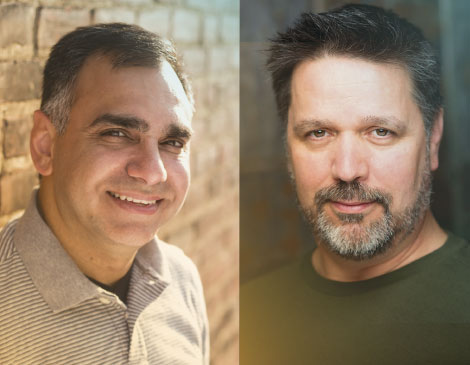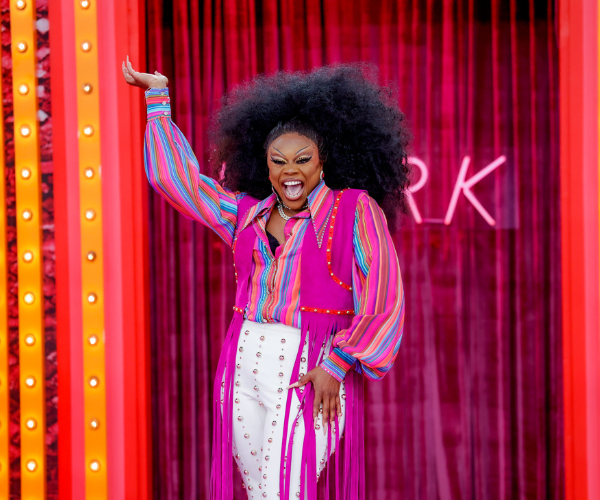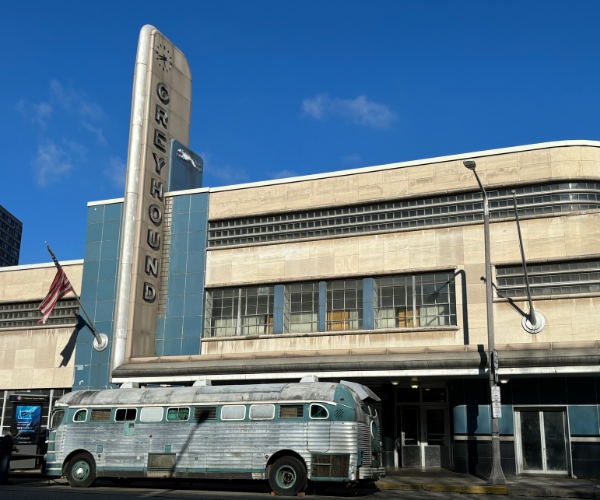Take a step into the creative mind of a playwright at Cleveland Public Theatre’s The Dark Room. Since its inception in 2005, new and experienced playwrights can bring in short plays or scenes and cast actors on the spot for a cold read of their work. In this unique stage, playwrights can hear the flow of dialogue, tone of a piece and reaction of the audience and workshop their pieces accordingly.
Two longtime veterans of The Dark Room, Assad Khaishgi, an actor for over a decade and recent writer, and John Busser, a frequent contributor to The Dark Room and assistant organizer of the monthly event, credit the feedback for helping improve their craft. While the pandemic has shifted The Dark Room onto Zoom, it’s still open to all performers, writers and audience members, and actually makes each performance more creatively intimate.
Assad Khaishgi:
[It’s exhilarating] just being there at the outset of a piece because sometimes these pieces have gone on to become parts of bigger pieces or staged in different places. We only get the piece just a few minutes before it goes on. You don’t really have any time to practice the movements or anything like that.
A lot of John’s pieces are often written with that in mind. He’s plotted out how he would like the stage to be set up and he’s written it in such a way to make it easy for people to be able to interpret the movements and the characters just on the basis of a quick, preliminary reading of it.
[John has] written a couple of pieces that have a couple of parts that are specifically for me, so that was cool. He did one piece where there were a lot of different accents. An unexpected benefit of everything going to Zoom is a lot of people who otherwise have trouble coming in person to The Dark Room are able to join in over Zoom. We’ve also gotten pieces from different venues, different cities, that normally you wouldn’t expect. There are people who have moved out of town and haven’t had a chance to join in and now they can.
John Busser:
I’ve written close to 70 short plays through The Dark Room. There was a piece that I brought and the actors were reading it in such a way that as I listened to it, I thought that’s not reading the way I intended. But the thing I learned from that is all their acting choices were completely legitimate based on the dialogue as they were reading it. This showed me I needed to rewrite the dialogue and once I did that it worked completely differently and better than what I originally showed up with.
The Dark Room has been sort of a no judgment zone. It’s a very congenial atmosphere. We’ve had people that have become regulars, like Assad, and you get to know what people’s strengths are as an actor. I wrote a character specifically with him in mind.
It was a play about an actor auditioning for a role and he ends up having to jump through a lot of hoops: he’s playing women, he’s playing Irish, he’s playing African American, he’s playing taller, he’s playing shorter, he’s playing younger.He jumped through every hoop. I made sure to include a Bob Dylan impression that he absolutely could not do, which made it even funnier. The nice thing about working with Assad is no matter what I’ve thrown at him, he tries it.




